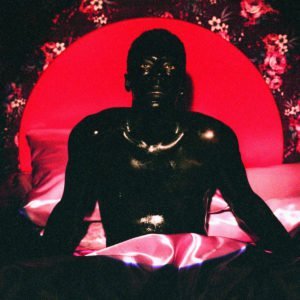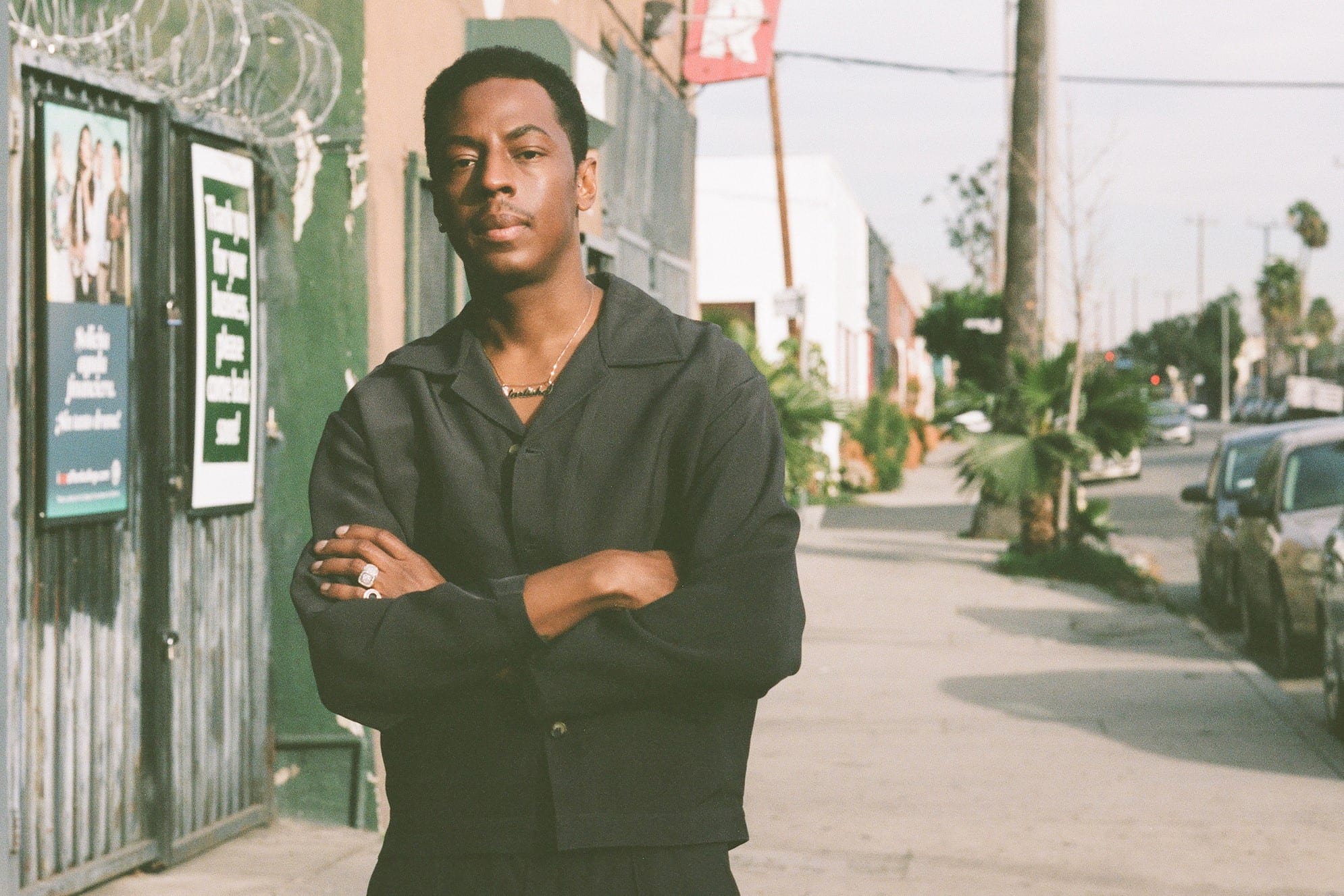Since the early 2000s, Naeem Juwan has made a sweaty splash with his unapologetic electro-rap project Spank Rock. While the filthiest moments may stick out in the memories of casual fans, his music has always contained multitudes. Spank Rock’s 2011 sophomore album, Everything Is Boring and Everyone Is a Fucking Liar, fuses heady samples such as the cult German group CAN with pop hooks, tongue-twisting rhymes and Prince-style falsetto funk. After touring the world for the past few years as a member of The Avalanches’ live band, the Baltimore-born musician has re-emerged as a solo artist with the first release under his given name. Throughout the creation of his genre-defying 2020 album, Startisha, Naeem challenged himself with a pair of new practices: integrating lyrics based on personal experiences and writing as many love songs as possible.

“Startisha,” the debut album under the Naeem, release earlier in June.
“I never made a distinction between Spank Rock and myself as much as music journalists or the audience did,” he says over the phone from his home in Los Angeles. “I push myself on every record to come up with different ideas, blend things together and do something I hadn’t done before. For me it feels like I’m doing the same thing I’ve always done, but I did set some specific rules to grow as an artist. It wasn’t for anyone other than myself.”
For the past 11 years, Naeem has been in a relationship with filmmaker Scott Ross, whose impressive portfolio of music videos includes projects with Big Freedia, Miguel and the punk band Pissed Jeans. Naeem jokes that the video for his new single “Simulation” only exists because of COVID-19. “I got lucky to be quarantined with him,” he says. Ross is also the subject of “Stone Harbor,” one of the album’s most stunning songs, named for the New Jersey shore town where he and his family spend their summers.
When the first Spank Rock album, YoYoYoYoYo, was released in 2006, Naeem remembers a gay friend confronting him in a New York club, believing he was hiding his sexuality. “It made me really angry because there’s nothing I had been doing to closet myself,” he says. “It’s like, ‘if you know that, how am I in the fucking closet?’”
In Naeem’s opinion, he has always been true to himself. By making his live performances an extension of his wild, extroverted personality, he strives to provide a space for audiences and artists to be exactly who they want to be.
“I’ve always been up in people’s faces,” Naeem says. “The space I created for that generation is what spawned careers like Le1f or Mykki Blanco. It opened things up and gave them enough room. I’m not saying that I did anything for those artists. They’re clearly very intelligent and on their own path, but I laid down groundwork to say it can be open and free.”
Naeem believes strongly in representation, citing the work of his friend Brett M. Peters from the It Gets Better Project. That organization’s mission is to provide a platform for older voices in LGBTQ2 communities to tell their stories, while preventing younger people from committing acts of self-harm.
“I think it’s so important to see an image of yourself to feel more comfortable,” Naeem says. “Being part of the LGBTQ community doesn’t look like glitter and boas all the time. It opens the world up to be way more diverse than what’s being presented to us in the mainstream media. Understanding the diversity in being queer is just as important to understand the diversity in being Black or in being a woman.”
Startisha includes its own diverse cast, but remains an intimate expression of Naeem’s journey at its core. “I’m pretty private about my music and shy away from collaboration, which you might not think when you look at the credits on the album,” he says, laughing. The recording process began in Philadelphia four years ago with producers Sam Green and Grave Goods, before Naeem’s long-time supporter Ryan Olson (founder of Gayngs) invited him to Minneapolis for a series of sessions.
This led him to April Base, the home studio of Bon Iver’s Justin Vernon in Eau Claire, Wisconsin. It was there that Naeem linked up with the Kanye West co-signed pop group Francis and the Lights, adding to a list of guest spots on the album including soul legend Swamp Dogg and rising star Velvet Negroni. “There was just this vibe with so many musicians hanging out in the studio,” Naeem says. “We found ourselves in this very open, fluid, collaborative music scene. It just happened really naturally.”
That spirit is reflected in the boundless sound of Startisha, which opens with a cover of the 1969 cult classic “You and I” by pioneering electronic rock duo Silver Apples. Naeem describes it as a “socialist love song,” drawing on the tradition of Isaac Hayes’ radical reinterpretations of artists like The Carpenters, Bill Withers or Dusty Springfield while slowing the tempo down to a pained lament.
Startisha’s title track is named for a family friend who provided early inspiration with her free-spirited nature, dancing to Baltimore club music in front of Naeem’s aunts and uncles. “Tiger Song” takes the same personal approach, riding a heart monitor rhythm under lyrical references to Malcolm X, Martin Luther King and his own father, describing Naeem’s path to being “born a lover, raised a fighter.”
The sexed-up sound of Spank Rock is represented on “Woo Woo Woo” and its physically distanced three-way video that shows Naeem connecting (via computer screens) with a pair of artists who have popped up throughout his career: Micah James and Amanda Blank. He compares James’ smooth, powerful flow to the rapper Common, while Blank’s uniquely raspy delivery should be familiar to dedicated fans of her performance on the classic 2006 Spank Rock song “Bump.”
“I love the idea of having three different voices on the track and no real hook, just us passing the mic,” Naeem says. “It felt like early cypher days in West Philly smoking blunts—like I was in Digable Planets or the Native Tongues collective. My favourite thing about the song is the voices and hearing them bouncing off each other back-to-back.”
Though COVID-19 halted his touring plans, Naeem feels that the worldwide uprising and protests against police brutality have eclipsed his own music. He shares the range of emotions he has felt in the adrenaline rush of recent weeks, from fear to anger and ultimately excitement, in what he describes as “the most beautiful display of humanity I’ve ever seen.”
“I look back at the ’60s and ’70s in America, from civil rights to Vietnam, and wonder how they got through that. It’s romantic to think about living through those times, and the music that came out of it is so beautiful,” Naeem says. “Now I’ve had the realization that we’re witnessing another gigantic shift in mankind and the way we think about each other. I think it’s going to make my next project even better because of how full of life I feel right now.”


 Why you can trust Xtra
Why you can trust Xtra


